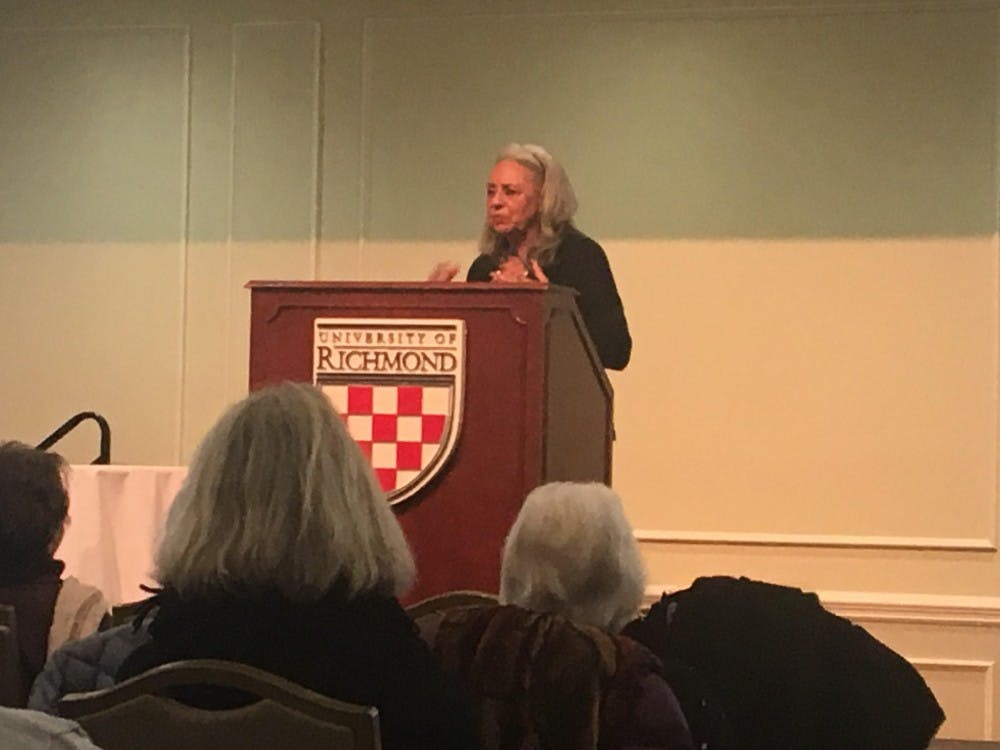Vivian Pinn, leader-in-residence for the Jepson School of Leadership Studies, emphasized the roles of leadership in biomedical research through her own experience when she spoke at the Jepson Alumni Center on Feb. 13.
Pinn, former professor and retired founding director of the National Institutes of Health’s Office of Research on Women’s Health (ORWH), is now the senior scientist emerita at the NIH.
“Leadership can give you power, and you can use that in a good way or a bad way because then you are perhaps in a position to influence what is going on,” Pinn said. “Learn from the good things that happen, and pay it forward. But also learn how to not be the people who have had a negative influence on your career.”
The presentation, “Women’s Health and Biomedical Leadership: From Tradition to Equity,” called attention to the progress women’s healthcare has made in the last 50 years, but also acknowledged how far it still needs to go to reach equality.
“I loved how she spoke about her own experiences, but based on that, she sensed the need for the future generations," Miranda Barbosa, a sophomore who attended the presentation, said. "And that even though things have improved so much, they are nowhere near where they need to be."
President Ronald Crutcher introduced Pinn as the leader-in-residence, noting her background in biomedical research that focused primarily on women and minorities. But Pinn later said that one cannot study women or minorities without studying white men too.
“As a medical student at the University of Virginia in the 1960s, Dr. Pinn was the only women and minority color in her class,” Crutcher said.
This past fall, UVA named its main medical education building, Pinn Hall, after Pinn.
Pinn said she remembered an interaction from medical school when a male friend had said she could not be a chairperson simply because she was a woman. She later proved him wrong and said she thanked him for his doubts that had pushed her to achieve more. However, Pinn said the stereotypical and historical biases still prevailed today.
“It’s not that women don’t have the talent to do science and engineering, but it’s the systems in which we have to deal that have not been modified to meet some of our needs and demands,” Pinn said. “Women should be thought of, not just as those who are beneficiaries of healthcare, but as those who deliver healthcare.”
Pinn emphasized the need for people to be aware of their implicit biases and overcome them in order to ensure equity of opportunity. It is a person’s responsibility to achieve career success through mentoring and networking to encourage equity of opportunity, Pinn said.
“From getting into the area to being in a leadership position or being successful, you need the inspiration,” Pinn said. “You need role models and mentoring, you’ve got to have the academic preparation. You want to have access to be able to get into the field, and you have to learn how to negotiate those critical points of transition and achievement.”
Enjoy what you're reading?
Signup for our newsletter
In conclusion, Pinn said young people had the ability to fill the gaps in knowledge that continue to exist, but questioned the audience as to whether they used their skills and knowledge to bring about a positive change.
“If you’re going to be a leader, you’ve got to know where you’re going,” Pinn said. “Before you can lead someone else, you’ve got to determine your goals.”
Contact news writer Stacey Dec at stacey.dec@richmond.edu.
Support independent student media
You can make a tax-deductible donation by clicking the button below, which takes you to our secure PayPal account. The page is set up to receive contributions in whatever amount you designate. We look forward to using the money we raise to further our mission of providing honest and accurate information to students, faculty, staff, alumni and others in the general public.
Donate Now



